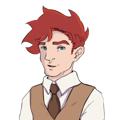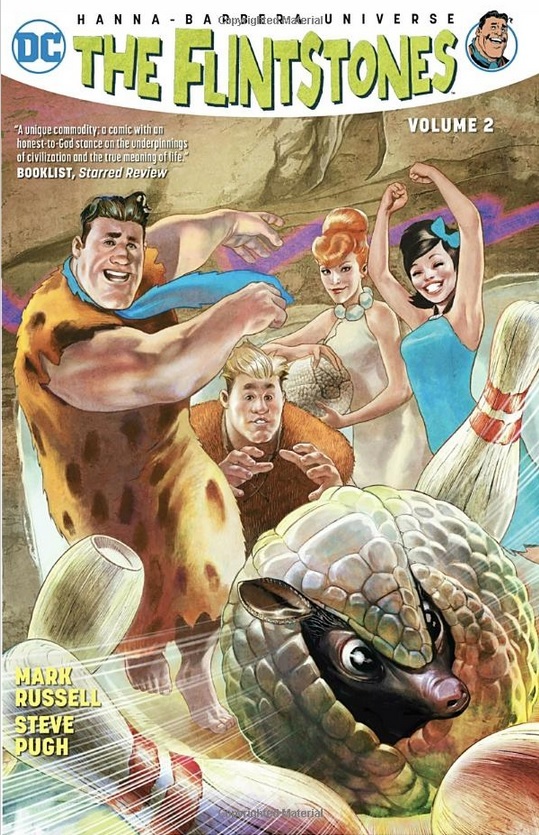Literally Graphic reviewed The Flintstones by Steve Pugh (The Flintstones, #2)
Review of 'The Flintstones' on 'Goodreads'
3 stars
More of a series overview then a review of just volume two, here goes.
Diving into the book itself, in many ways the plot of The Flinstones follows the life of what might be considered a tentatively upwardly mobile working class family. Although that is one of the items examined in this book. Are they climbing up or digging themselves into a hole? The darkest part of the comic is how we get a look inside the heads of each of the Flintstone's "appliances" who are, like in the cartoon, animals themselves. We also get flashbacks to both Fred and Wilma's life pre-Bedrock, and even Fred and Barney's time in a colonizing army that stole the area that would become Bedrock violently from the Tree People. Bedrock is also visited by aliens, many of them on spring break, and Fred's boss tries to lure some Neanderthals into working the pit because they have no concept of money. We also follow the local temple's trial and error journey to inventing the perfect deity. As satire there is very little in this short series that is factually true, but that's not the point.
That said, it being a satire does limit its audience a bit and does perhaps pump up the egos of people who agree with it? Basically it's creative comfort food, because while I do think I am biased towards it because I agree with it I do think that (as objectively as I can) the writing is pretty good and ingrates its ideas into the plot line in a fairly un-preachy manner. That said, there's two gay men, and homophobes are going to call that preachy no matter what no?
The art for the series does a pretty excellent job of bridging the original and this new purely satirical commentary on modern society thing. The characters certainly resemble their original counterparts, but with the addition of a tasteful level of detail and a reduction of colour saturation. The framing is pretty basic, but I assume they were trying to appeal to the widest audience and general curiosity.
Gender and sexuality are probably the weakest points of this duology, not because they are actively sexist but just that the male identified author who lives with his wife focuses mostly on the same person that the original cartoon also focused on. And the one mention of homosexuality (in favour) is part of a sub plot about the absurdity of modern marriage. We do get into Wilma's head a bit and learn more about her origin story and Pebble is precocious, but we get almost zero Betty and in outlining this review it felt pretty neutral level representation.
Race is also not very well represented. For me I guess it was a bit compensated by the fact that it did dig into colonization in a way you don't generally see in DC comics. But seriously, why is the default to just have what most people will perceive to be white cartoon characters, even across the backgrounds?
And as far as disability representation I once again must say not really, but with a caveat. This time because mental health does weave in and out of quite a few of the sub plots, not only in the quiet despair of the vacuum cleaner and bowling ball but also via Fred's PTSD from his time in the army.
So to summarize, not super radical, but headed in a direction that was entertaining and might be a nice pick-me-up.

